1. Increase Ventilation
 Ventilating homes reduces moisture levels, a major problem for indoor air quality. But no, we're not asking you to open a window and let all the outdoor air pollution enter your living space. Instead, install trickle vents to purify and cycle the air you breathe indoors. Another great alternative is to use exhaust fans which help carry pollutants outside. Make it a point to ventilate your kitchen since cooking can be a major source of indoor air pollution, especially if you have a gas stove. Scientists who measured indoor air quality found that cooking a single meal on a gas stove can produce levels of nitrogen dioxide that the EPA considers unsafe to breathe. Also, after you take a shower, be sure to vent out all the steam and extra moisture in the air which can cause mold and mildew growth by turning the fan on.
Ventilating homes reduces moisture levels, a major problem for indoor air quality. But no, we're not asking you to open a window and let all the outdoor air pollution enter your living space. Instead, install trickle vents to purify and cycle the air you breathe indoors. Another great alternative is to use exhaust fans which help carry pollutants outside. Make it a point to ventilate your kitchen since cooking can be a major source of indoor air pollution, especially if you have a gas stove. Scientists who measured indoor air quality found that cooking a single meal on a gas stove can produce levels of nitrogen dioxide that the EPA considers unsafe to breathe. Also, after you take a shower, be sure to vent out all the steam and extra moisture in the air which can cause mold and mildew growth by turning the fan on.
2. Beeswax Candles
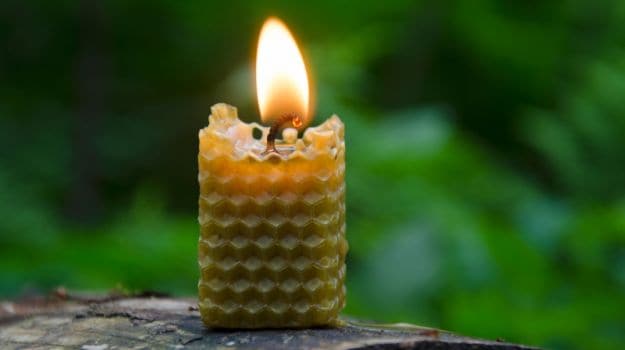 Beeswax candles act as natural air purifiers. If you love to fill your home with scented candles, avoid paraffin candles which are petroleum derived and release benzene, toluene and soot into the air. Since these candles do more harm than good, opt for beeswax candles which ionise the air and neutralise toxic compounds and other contaminants. Besides improving the air quality at home, beeswax candles burn slowly so you don't need to replace them often. In fact, pure beeswax candles burn with almost no smoke or scent. They are especially helpful for asthmatics and to remove common allergens like dust from the air.
Beeswax candles act as natural air purifiers. If you love to fill your home with scented candles, avoid paraffin candles which are petroleum derived and release benzene, toluene and soot into the air. Since these candles do more harm than good, opt for beeswax candles which ionise the air and neutralise toxic compounds and other contaminants. Besides improving the air quality at home, beeswax candles burn slowly so you don't need to replace them often. In fact, pure beeswax candles burn with almost no smoke or scent. They are especially helpful for asthmatics and to remove common allergens like dust from the air.
3. Salt Lamps
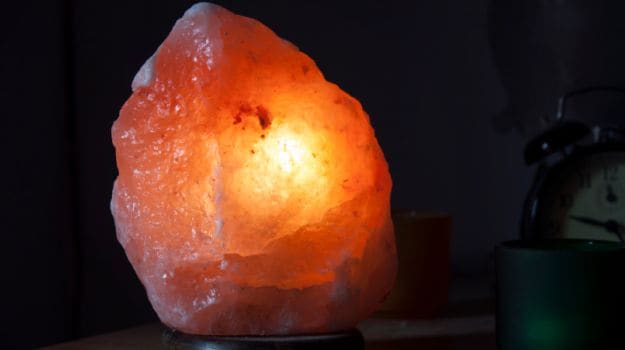 A salt lamp is another great natural air purifier. "Salt crystal products tend to reduce airborne irritants, pathogens and allergens by pulling water vapour out of the air. Himalayan pink salt is a natural ionic air purifier that pulls toxins from the environment and neutralises them", says Dr. Manoj K. Ahuja, Healing Touch. Simply adding a Himalayan pink salt lamp in your room or near your desk at the office does the trick, in terms of functionality and decor. You can leave it on at night as well, since the natural orange glow doesn't disrupt sleep hormones. Note to remember: Salt lamps improve air purification much more when they are turned on, but surprisingly work when turned off too.
A salt lamp is another great natural air purifier. "Salt crystal products tend to reduce airborne irritants, pathogens and allergens by pulling water vapour out of the air. Himalayan pink salt is a natural ionic air purifier that pulls toxins from the environment and neutralises them", says Dr. Manoj K. Ahuja, Healing Touch. Simply adding a Himalayan pink salt lamp in your room or near your desk at the office does the trick, in terms of functionality and decor. You can leave it on at night as well, since the natural orange glow doesn't disrupt sleep hormones. Note to remember: Salt lamps improve air purification much more when they are turned on, but surprisingly work when turned off too.
4. Activated Charcoal
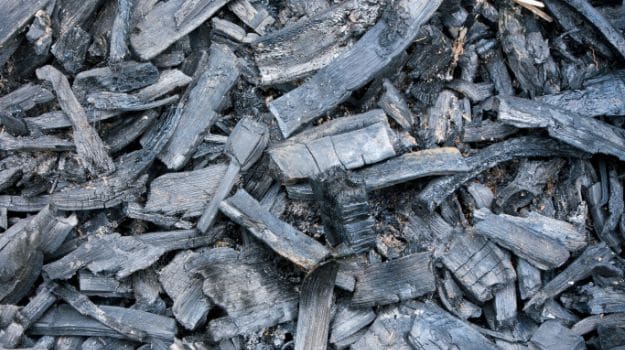 Use activated charcoal as a natural air purifier. A fantastic way to purify indoor air is with activated charcoal, also referred to as active carbon. It's odourless, highly-absorptive and works wonders with eliminating toxins from the air. Another fantastic way to purify air at home naturally is bamboo charcoal.
Use activated charcoal as a natural air purifier. A fantastic way to purify indoor air is with activated charcoal, also referred to as active carbon. It's odourless, highly-absorptive and works wonders with eliminating toxins from the air. Another fantastic way to purify air at home naturally is bamboo charcoal.
5. Houseplants
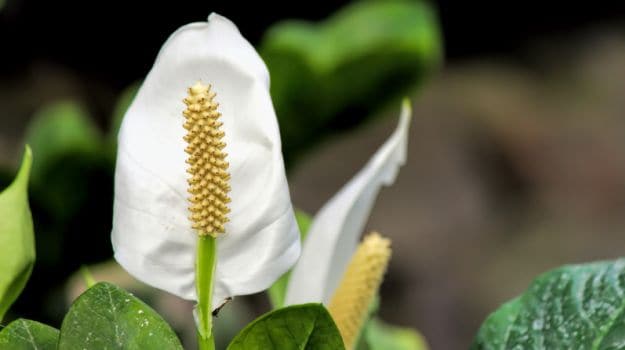 NASA conducted a study which stated, "Houseplants can purify and rejuvenate air within our houses and workplaces, safeguarding us from any side effects associated with prevalent toxins like ammonia, formaldehyde and also benzene." It's the best way to counter the impact of pollution indoors, particularly if you have a family member with some respiratory illness. It's suggested that you have at least one plant per 100 square feet of home for efficient air cleaning to be accomplished. The best plants to filter toxins from the air are Peace Lily which prefers moderate sunlight, Lady Palm or Broadleaf Lady Palm which is adaptable but prefers bright, indirect light.
NASA conducted a study which stated, "Houseplants can purify and rejuvenate air within our houses and workplaces, safeguarding us from any side effects associated with prevalent toxins like ammonia, formaldehyde and also benzene." It's the best way to counter the impact of pollution indoors, particularly if you have a family member with some respiratory illness. It's suggested that you have at least one plant per 100 square feet of home for efficient air cleaning to be accomplished. The best plants to filter toxins from the air are Peace Lily which prefers moderate sunlight, Lady Palm or Broadleaf Lady Palm which is adaptable but prefers bright, indirect light.
Peace Lily
Areca Palm, also referred to as Butterfly Palm, Golden Cane Palm and Bamboo Palm grow in bright, indirect light and can be kept anywhere, especially in carpeted rooms or those which have recently been painted. Chrysanthemum, commonly referred to as Pot Mums loves bright sunlight, and Money Plant i.e. Golden Pothos - also called Devil's Ivy, Money Plant, Silver Vine, Centipede Tongavine - is adaptable. Another houseplant which helps purify the air is English Ivy - often called Common Ivy or European Ivy and can be kept in rooms with computers, printers, fax machines et al. Boston Fern also grows easily in bright light and is best for hanging baskets. Spider Plant is useful in kitchens with gas stoves as it helps control carbon monoxide and xylene.
6. Essential Oils
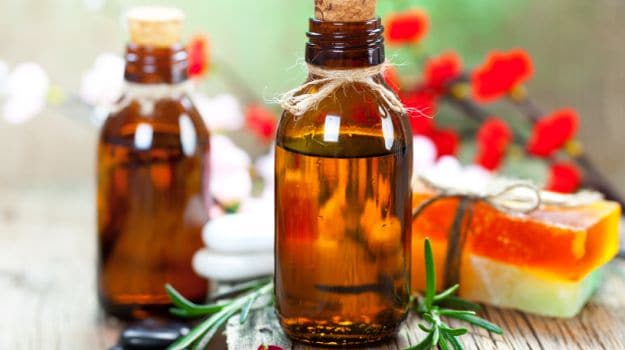 In the presence of essential oils like cinnamon, oregano, rosemary, thyme, grapefruit lemon, clove, tea tree - viruses, fungi, bacteria and even mold cannot survive. Studies from Weber State University show that Thieves Oil has a 99.96% kill rate against airborne bacteria. It is an antiseptic blend of pure essential oils including pine needle, cinnamon, thyme, eucalyptus, lemon and grapefruit which helps keep the home free from germs and purifies the air. You can add it to soaps and detergents to breathe fresher, cleaner air.
In the presence of essential oils like cinnamon, oregano, rosemary, thyme, grapefruit lemon, clove, tea tree - viruses, fungi, bacteria and even mold cannot survive. Studies from Weber State University show that Thieves Oil has a 99.96% kill rate against airborne bacteria. It is an antiseptic blend of pure essential oils including pine needle, cinnamon, thyme, eucalyptus, lemon and grapefruit which helps keep the home free from germs and purifies the air. You can add it to soaps and detergents to breathe fresher, cleaner air.
No comments:
Post a Comment